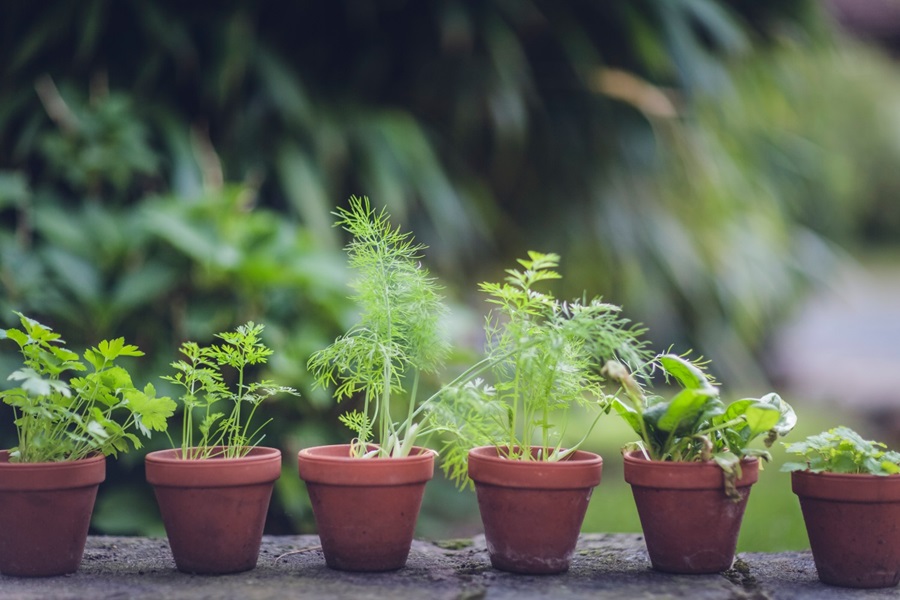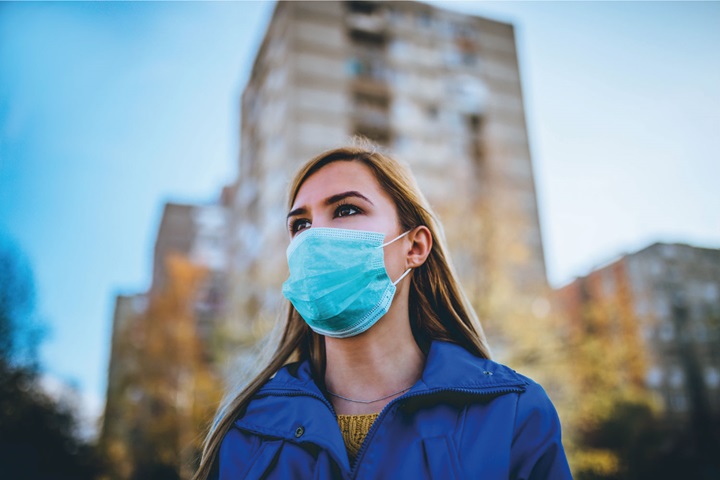Corporate sustainability progress has been gathering steam following the Business Roundtable signing in August 2019 and upon the release of the ‘Davos Manifesto’ in January 2020. Now some pundits believe that COVID-19 will impede this evolution – a prediction grounded in two key assumptions. Firstly, businesses recovering from financial losses caused by the pandemic will deprioritise the sustainability agenda. And secondly, peoples’ efforts toward more sustainable living have been derailed due to the tightening of household budgets, a resurgence in plastic packaging and the threat of future crisis. But not all evidence supports this perspective. Others regard the pandemic itself as a sustainability issue prompted by an increasing encroachment of wildlife environments. With 60% of all human diseases originating in animals, this is a key time to ask ourselves how much of our health is connected to the health of our planet.
Is sustainability still on businesses’ agenda?
Many businesses that saw sustainability as a critical strategic priority before the pandemic continue to support this direction. CEO Danone North America, Mariano Lozano recently said, “Ultimately, we believe that this challenging moment can be used as a catalyst to help others recognise that the health of our people and of the planet are all interconnected.”. Unilever CEO Alan Jope highlighted in a May 2020 interview, “We’re all very focused on the virus right now, as we should be. But the other big problems in the world, things like climate change and inequality, are not going away.” Managing volatility and risk around future crises undoubtedly lie at the heart of businesses sustainability efforts — but aren’t the only thing. With the consumer momentum gained in 2019 behind sustainability, there is also a strong desire to realise the commercial opportunity.
Has the pandemic faded the general public’s interest in sustainability?
Research from the Kantar COVID-19 Barometer highlights that 71% of the global population feel the impact of coronavirus on their household income, which may hold people back from shifting towards more sustainable consumption. However, the barometer data suggests that those who have been most impacted by the economic fallout of the coronavirus are the very people who support greater corporate involvement in societal and environmental issues.
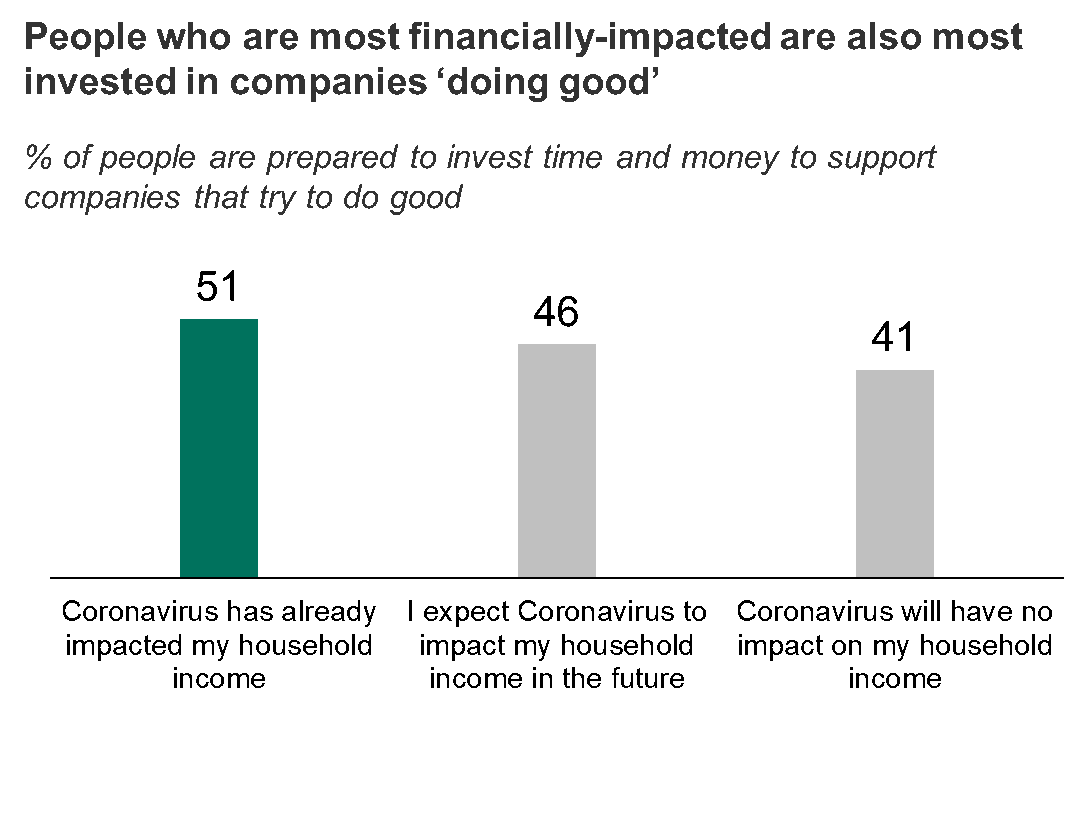
Current circumstances are placing different pressures on people. In the past, sales of green and ethical products tended to be driven by more affluent consumers. The agitation of COVID-19 may be changing that. Personal economic constraints could play less of a role when there are larger concerns around safety, security or even survival. While COVID-19 has provoked changes in people’s consumption patterns, maybe the return to disposable packaging is just temporary. Certainly, the status quo has inertia on its side, and people are remiss to change unless they feel enough discomfort. But, perhaps the emotional turmoil – the anxiety, worry, sadness and anger which are powering an evolution in current attitudes – could lead to more permanent behaviour change.
Although 58% of people globally ‘prefer products and services that offer ways to offset their impact on the environment’, for most people, these values do not systematically translate into their shopping behaviour – a dissonance referred to as the Value-Action gap. Buying ethical and green takes a concerted effort and requires more convenient access to these offers. Perhaps the accelerated trend toward localism, identified in wave 4 of the Kantar COVID-19 Barometer will be the catalyst towards sustainability that green advocates have wished for. Globally, 66% of people are now in favour of buying goods and services produced in their own country, and we see an upward trend in all localism dimensions of our Barometer.
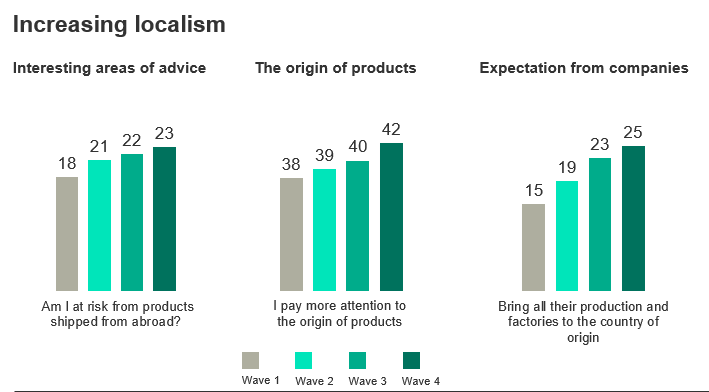
The recent success of ‘C’est qui le Patron’, which pays farmers a premium for their local organic products in France is an example of the level of engagement that new sourcing or provenance strategies can create. An area that other brands might consider as we head toward COVID-19 recovery. The trend toward localism shows how the expectations and focus on sustainability may manifest in new ways, and it indicates that people are looking to buy differently moving forward.
Do brands still have a right to play?
Using the Kantar Sustainable Transformation Practice’s validated sustainability audience classification, we identified in the COVID-19 Barometer a group of people who are most engaged with sustainability to understand how they would like to see brands show up. We found that this audience, previously seen as hard to engage, give brands permission to play a role in this crisis. They are more receptive to brands that talk positively about their brand values, when done through an evidence-based approach.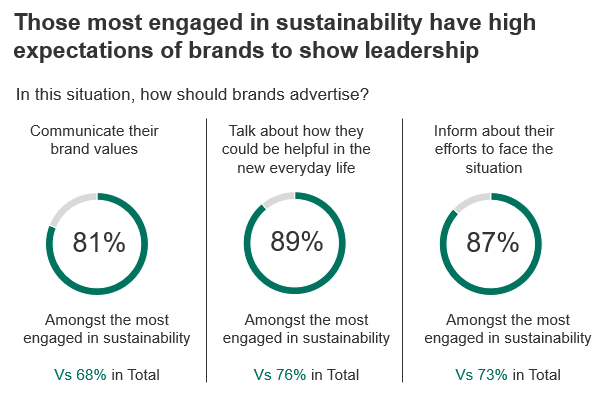
There is a key opportunity for brands to become allies and build trust with this audience and consumers more widely through their effort toward making the world a better place. The only question that remains is whether this is the tipping point for sustainability. It certainly feels like the ‘new normal’ has a sustainability silver lining.
